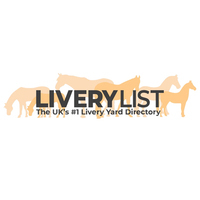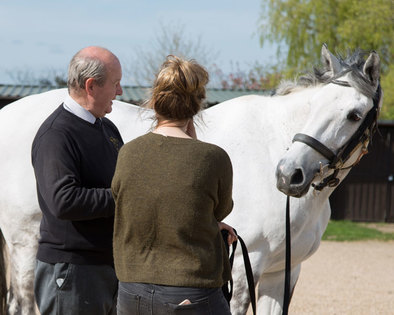The range of experience and knowledge in horse owners across the UK varies remarkably. Many horse owners have owned or worked with equines their entire life and are a wealth of knowledge, others may be novice and inexperienced owners finding themselves in unfamiliar territory should problems arise. In either case, there will be times we need to seek advice- perhaps about the behaviour of our equines, veterinary issues or just general horse care. But who to turn to for the best advice?
Where shouldn't you go for advice?
The first place to turn for many owners these days is online forums and social media. Much of the time any replies are most likely written based upon the initial information given, perhaps with not all of the background story. Furthermore, the comments will be from strangers who have no direct knowledge of you, your horse or your circumstances. This can often result in unverified information and multiple suggestions, some of which may be completely incorrect or even misleading. This can even lead to those who may reply clashing with one another about the information or reply they have given, which is non-productive and can simply confuse you further.
Where can you go for general problems?
There are a plethora of equine websites all offering advice and ‘How To’ guides for various aspects of horse care and welfare, such as the
Horsemart blog. While these are often informative and enlightening as an article in general, they are unlikely to be of use if you have a specific issue or concern with your horse. Every horse, owner and circumstance is different, and you cannot truly base your query on a generalised article unless it is a generic problem.
Can the people at your livery yard help?
Bear in mind that any misguided advice can not only make a problem worse but may affect the health or behaviour of a horse long term, which may take time and money to put right. Any problems should be correctly and thoroughly investigated before action is taken to ensure you have the right information and reasoning before attempting to resolve a situation. Hence the importance of asking those who are knowledgeable in that field and have prior experience with your equine to accurately conclude what may be the problem and how best to treat it. It would be awful to incorrectly use new equipment or to make an issue worse based upon the advice of a complete stranger.
If you keep your horse at a livery yard, your yard owner, or their staff, should be your first port of call with most queries relating to your horse. These people are likely to know your horse best and it could save you a wasted call out for the vet or other equine professional if they can help resolve the problem. The yard manager and staff probably handle and observe your horse daily, so they should be able to give you a good indication of when things may be amiss and how best to approach them. Secondly, they will hopefully have many years of experience in caring for equines and you may not be the first person to have approached them with such questions or concerns. If you approach a member of yard staff and they are unsure, go directly to the yard manager/owner, they should be a good source of advice. Moreover, they will be able to make decisions concerning yard policies or make changes to the management of the horse that can help the situation.
Yard owners and their staff will have your and your horse's best interests as their main consideration with any response they give and will try to best advise you. Furthermore, if they feel you need to seek further advice, they will be able to advise you on who to speak to and be able to give you personal recommendations based on experience. Should the yard owner not be able to advise on your issue, or you wish to check the advice they have offered, the next port of call is to contact the relevant equine professional relating to your particular concern.
As an example, if your horse comes in from the field showing mild signs of lameness, the best person to ask first is the yard owner or their staff to see if they have noticed this over the day. They can help you identify which leg is lame, give a good inspection of the leg and foot to see if any cause or injury can be identified and if not, may suggest taking action such as hosing off and overnight rest which may improve the situation. You, or the yard owner or staff, can then see if this has improved by the morning. If it has not, you could call the vet, or if it seems to be coming from the lower leg or hoof, your farrier.
Why should you get any problem investigated by a professional?
Most equine care and management professionals are regulated by officially recognised bodies, be these farriers, vets, instructors, equine dental technicians, nutritionists, etc. However, many roles are unregulated to an extent and just because someone advertises as an experienced instructor, saddle fitter, equine behaviourist, equine dentist, equine bodywork practitioner or the like, does not mean they are fully qualified either to practice or to give you advice. It is important to check a person’s credentials before seeking advice or requesting treatment. Many remedial treatments require a veterinary referral before undertaking. Therefore, it is best to discuss any issues with your vet first.
Whilst a vet will be able to answer any questions relating to injuries, illnesses, health concerns, etc, it is not always necessary for an appointment. Many queries can be asked over the phone, which is much better than having to arrange a visit and likely to get you the answer quicker. Many vets will happily give you a call back to discuss any concerns you may have, free of charge and without needing to arrange an appointment unless they feel it necessary. As well as vets, there are other equestrian professionals whose services cross over with that of vets, such as farriers, equine dental technicians, nutritionists and more, who will all be able to help with their area of concern and give suitable advice as a first point of contact.
If you receive guidance from an equine professional and are unsure if it's correct, or feel there may be a better option, then your best solution is to contact another equine professional for a second opinion. You do not have to accept the first piece of advice if you are unsure. The most important aspect of horse ownership is “do not be afraid to ask for help”. No one will frown upon anyone asking a genuine query that may affect the health or welfare of their horse. Even as an experienced owner, you will still come across unknowns and there’s always plenty more to be learned! New research and findings are being made all the time, and registered professionals and official bodies are the most likely to be up to date with current recommendations and advice.
There are several recognised bodies and charities that have good sources of general equine advice, such as The British Horse Society or World Horse Welfare. Many veterinary practices and manufacturers of certain equine products will also provide informational pieces on their websites, which can prove useful for general advice. On top of that, many professional bodies and companies have helplines designed to advise both generally and on specific cases. These should certainly be taken advantage of as these tend to be manned by qualified professionals specialising in that field of advice.
Below is our suggestion as to who to speak to as the first point of contact for various equine queries:
-
Veterinary (Emergency) - Vet
-
Veterinary (Minor or Query) - Yard Owner or Vet (by phone)
-
Lameness - Yard Owner, Farrier or Vet (by phone)
-
Behaviour - Yard Owner or Instructor
-
Bitting or Saddlery - Bitting Specialist or Qualified Saddler
-
Dentistry or Mouth Related - Equine Dental Technician or Vet
-
Livery-Related Queries - Yard Owner or Yard Staff
-
Feed and Nutrition - Yard Owner, Feed Manufacturer Helpline or Qualified Nutritionist
-
General Horse Care Advice - Yard Owner
-
Equine Welfare - Yard Owner, Vet (by phone) or Welfare Authority
-
Worming - Vet (by phone) or SQP
-
Legal Matters - BHS Legal Helpline or Equine Law Specialist
This article is not exhaustive, and there are many levels of advice and treatments available from a whole range of equine professionals. Most importantly, you should be confident in the credentials of those whom you are seeking advice from, particularly if you are following a treatment or remedial action that they have recommended. If in any doubt, seek a second opinion or ensure you are seeking advice from a suitably qualified person.



